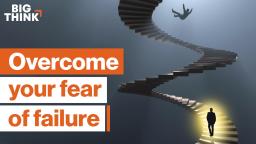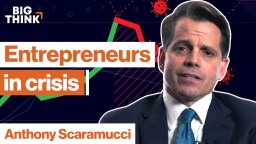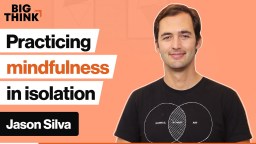KAREN PALMER: I am not so much of a pro-empathy chick. I feel, this is just my personal opinion that I don't feel empathy is the one and that it has been the one for the past few years and I don't think things are getting any better. In fact, things are getting worse, right. I feel a lot of this oh, I understand how you feel. That's not helping me so to me personally it's a very passive emotion. And my number one priority is moving through fear because I feel that fear is the most powerful emotion that is in the world and that most of my emotions, other people's emotions I believe is governed or influenced by fear. Like oh, I can't leave my job. I hate my job, I can't leave my job. How will I live. I can't leave this guy or I've got to hang out with this chick, I need them. If we can kind of move through our fear and also I feel that how we're being influenced and manipulated by the media is very strategically playing on people's fears.
So if we can kind of as opposed to focus on oh you, how are you feeling and focus on ourselves and take responsibility for our actions and move through that. That is the number one focus of my work. Enabling you to move through your own personal fear.
So I'm very much inspired by parkour and I am still am a freerunner but I was a really hardcore freerunner training like six, seven days a week for two years at one point like a decade ago, 12 years ago in my life. And I basically didn't realize at the time but me and the people that I trained with were basically completely rewiring our brain. We were learning to understand and our own, we were learning to understand our own personal triggers for fear and then navigate through there. So say that we were jumping on a ledge that if we fell we might break both our legs. And the distance was quite manageable so what we'd do is we'd start on the ground. Then we'd go up a little bit higher, go up a little big higher. The same distance but as you go higher it's not the distance, it's the consequences that scare you.
So we learned to master our own fear and develop strategies for moving through fear. And often in life when we feel fear we kind of get nervous and we run from it. But really when you feel fear it's something new and probably that's a direction not all the time but often that we should be moving toward to embrace something new. I felt so empowered that it inspired me to change my life like leave my boyfriend, leave my job, change my flatmate, change my business partner, everything. Because I was like well if I can train and I'll jump on this wall and I didn't break my legs what's the worst that can happen if I split out with my boyfriend and I don't think he's the one, right. I basically reprogrammed my brain. And then from that I was able to change my whole life and be sitting here with you today, right.
So with my work I was inspired over many years. Again, it's about a decade to try and break that down and distill that into a process that can be translated into a user experience within immersive storytelling and digital art. And that's basically film and behavioral psychology where the film, you see a narrative. You're kind of governed and motivated by your fear and that you get a response. And if you're happy with the response you could then go back into the experience and change your narrative. Focus on your breathing, relax, think about your motivation, whatever that thing is so that you could basically move through your fear. And then once you've done it once the kind of key is with parkour is that we kind of say well, you've got to do something three times. And that is kind of like quite a common thing when you're trying to master something. Once is like, you can do it twice and three times now you've mastered it. And that's because neurologically it kind of takes you three times for your neurons to fire in your brain and to create those new pathways. Then it's like sealed. So my film enables this process through a storytelling experience which is cool and fun and exciting and dynamic. It doesn't feel like work. It doesn't feel like you're doing some meditation app or anything. It just feels really cool. So it's got a combination of parkour philosophy, science, filmmaking and storytelling.





